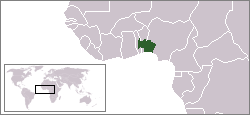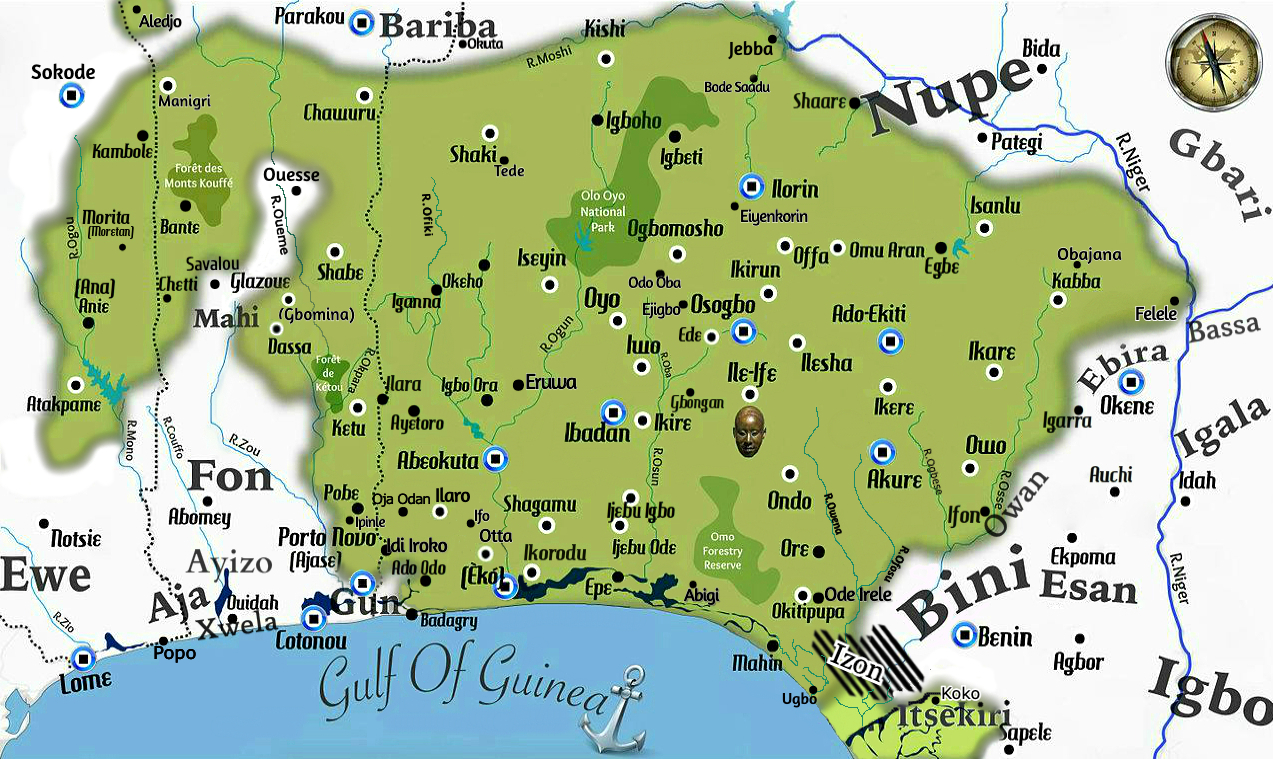|
Nigerian Chrislam
Chrislam refers to a Christian expression of Islam, originating as an assemblage of Islamic and Christian religious practices in Nigeria; in particular, the series of religious movements that merged Muslim and Christian religious practice during the 1970s in Lagos, Nigeria. The movement was pioneered by Yoruba peoples in south-west Nigeria. Chrislam works against the conventional understanding of Islam and Christianity as two separate and exclusive religions, seeking out commonalities between both religions and promoting an inclusive union of the two. Chrislam also occupies a distinct geographical space; Nigeria is often understood to be geographically and religiously polarized, with a predominantly Muslim North, and a predominantly Christian South. Nigeria is religiously split mostly between Muslims and Christians. Nigeria is the most populous country of Africa, with 195 million inhabitants. Muslims and Christians each comprise roughly half of the total population. Muslim an ... [...More Info...] [...Related Items...] OR: [Wikipedia] [Google] [Baidu] |
Yorubaland Location Map
Yorubaland () is the homeland and cultural region of the Yoruba people in West Africa. It spans the modern-day countries of Nigeria, Togo and Benin, and covers a total land area of 142,114 km2 or about 60% of the land area of Ghana. Of this land area, 106,016 km2 (74.6%) lies within Nigeria, 18.9% in Benin, and the remaining 6.5% is in Togo. Prior to European colonization of the Americas, European colonization, a portion of this area was known as Yoruba country. The geo-cultural space contains an estimated 55 million people, the majority of this population being ethnic Yoruba people, Yorubas. Geography Geo-physically, Yorubaland spreads north from the Gulf of Guinea and west from the Niger River into Benin and Togo. In the northern section, Yorubaland begins in the suburbs just west of Lokoja and continues unbroken up to the Ogooué River tributary of the Mono River in Togo, a distance of around 610 km. In the south, it begins in an area just west of the Benin and ... [...More Info...] [...Related Items...] OR: [Wikipedia] [Google] [Baidu] |
Kaduna State
Kaduna State ( ha, Jihar Kaduna جىِهَر كَدُنا; ff, Leydi Kaduna, script=Latn, ; kcg, Sitet Kaduna) is a state in northern Nigeria. The state capital is its namesake, the city of Kaduna which happened to be the 8th largest city in the country as at 2006. Created in 1967 as North-Central State, which also encompassed the modern Katsina State, Kaduna State achieved its current borders in 1987. The fourth largest and third most populous state in the country, Kaduna State is nicknamed the ''Centre of Learning'', owing to the presence of numerous educational institutions of importance within the state such as Ahmadu Bello University. Modern Kaduna State is home to the sites of some of Africa's oldest civilizations, including the Nok civilization that prospered from to .Breunig, Peter. 2014. Nok: African Sculpture in Archaeological Context: p. 21.Fagg, Bernard. 1969. Recent work in west Africa: New light on the Nok culture. World Archaeology 1(1): 41–50. In the 9th ... [...More Info...] [...Related Items...] OR: [Wikipedia] [Google] [Baidu] |
Mecca
Mecca (; officially Makkah al-Mukarramah, commonly shortened to Makkah ()) is a city and administrative center of the Mecca Province of Saudi Arabia, and the Holiest sites in Islam, holiest city in Islam. It is inland from Jeddah on the Red Sea, in a narrow valley above sea level. Its last recorded population was 1,578,722 in 2015. Its estimated metro population in 2020 is 2.042million, making it the List of cities in Saudi Arabia by population, third-most populated city in Saudi Arabia after Riyadh and Jeddah. Pilgrims more than triple this number every year during the Pilgrimage#Islam, pilgrimage, observed in the twelfth Islamic calendar, Hijri month of . Mecca is generally considered "the fountainhead and cradle of Islam". Mecca is revered in Islam as the birthplace of the Prophets and messengers in Islam, Islamic prophet Muhammad. The Hira cave atop the ("Mountain of Light"), just outside the city, is where Muslims believe the Quran was first revealed to Muhammad. Vis ... [...More Info...] [...Related Items...] OR: [Wikipedia] [Google] [Baidu] |
Holy Spirit In Christianity
For the majority of Christian denominations, the Holy Spirit, or Holy Ghost, is believed to be the third person of the Trinity, a Triune God manifested as God the Father, God the Son, and God the Holy Spirit, each entity itself being God in Christianity, God.Grudem, Wayne A. 1994. ''Systematic Theology: An Introduction to Biblical Doctrine.'' Leicester, England: Inter-Varsity Press; Grand Rapids, MI: Zondervan page 226. Nontrinitarianism, Nontrinitarian Christians, who reject the doctrine of the Trinity, differ significantly from mainstream Christianity in Holy Spirit (Christian denominational variations)#Non-Trinitarian views, their beliefs about the Holy Spirit. In Christian theology, pneumatology is the study of the Holy Spirit. Due to Christianity's historical relationship with Judaism, theologians often identify the Holy Spirit with the concept of the Holy Spirit in Judaism, ''Ruach Hakodesh'' in Jewish scripture, on the theory that Jesus was expanding upon these Jewish con ... [...More Info...] [...Related Items...] OR: [Wikipedia] [Google] [Baidu] |
Bible
The Bible (from Koine Greek , , 'the books') is a collection of religious texts or scriptures that are held to be sacred in Christianity, Judaism, Samaritanism, and many other religions. The Bible is an anthologya compilation of texts of a variety of forms originally written in Hebrew, Aramaic, and Koine Greek. These texts include instructions, stories, poetry, and prophecies, among other genres. The collection of materials that are accepted as part of the Bible by a particular religious tradition or community is called a biblical canon. Believers in the Bible generally consider it to be a product of divine inspiration, but the way they understand what that means and interpret the text can vary. The religious texts were compiled by different religious communities into various official collections. The earliest contained the first five books of the Bible. It is called the Torah in Hebrew and the Pentateuch (meaning ''five books'') in Greek; the second oldest part was a coll ... [...More Info...] [...Related Items...] OR: [Wikipedia] [Google] [Baidu] |





.jpg)